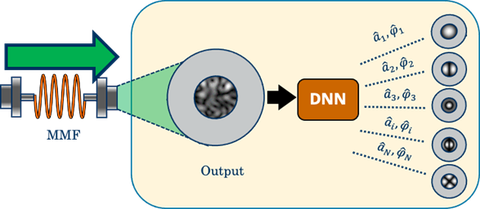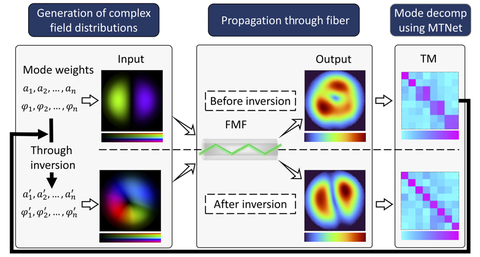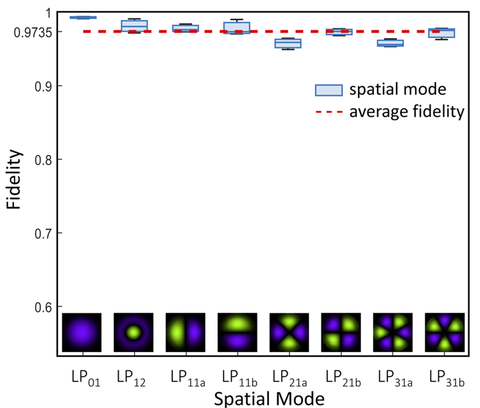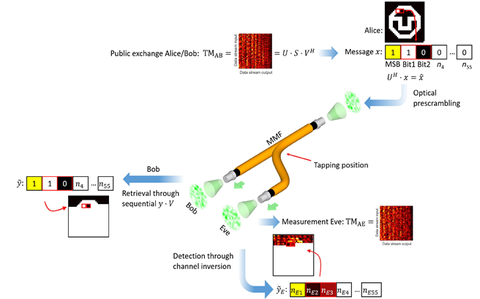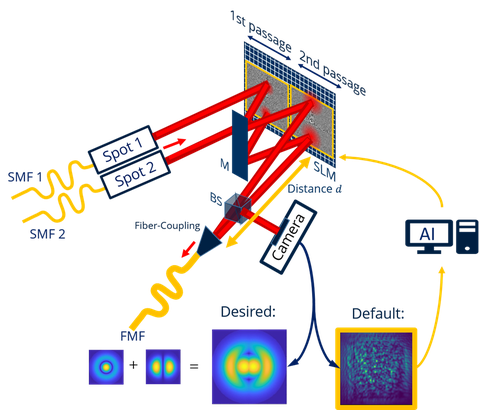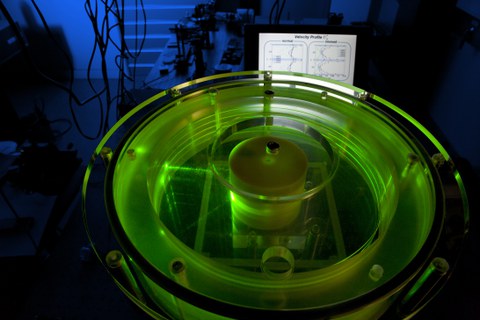Research
Overview of all current projects
DFG APPROVES JOINT RESEARCH PROJECT ON SECOND-GENERATION QUANTUM TECHNOLOGY AT TU DRESDEN AND TU DARMSTADT
Quantum technology revolutionizes biomedical diagnostics through novel entangled holography
For the first time, the German Research Foundation (DFG) is funding a groundbreaking project on the use of entangled photons for biomedical 3D imaging and holography with a total volume of around 800,000 euros. The joint project "3D quantum imaging with non-detected light and wavefront control", which is being carried out in close cooperation between TU Dresden and TU Darmstadt, marks a significant step in the application of second-generation quantum technology. The project is led by Prof. Markus Graefe (TU Darmstadt) as well as Prof. Juergen Czarske and Dr. Lars Büttner from the BIOLAS Competence Center (TU Dresden). The project will start on January 1, 2025 and run for 3 years.
The project focuses on the development and application of quantum imaging techniques based on spatially correlated photons. This makes it possible to spectrally separate light sources of the illuminating and detected light, which introduces a paradigm shift in biomedical diagnostics. In particular, new methods for the examination of carcinogenic tissue are to be developed that enable marker-free, chemically selective and gentle 3D imaging and thus offer a promising alternative to traditional fluorescence labeling. By matching the illumination light to the absorption lines of certain biomolecules in the infrared spectral range, a natural contrast is created that makes the molecular structure of tissues and cells more visible, but correlated "partner light" in the visible spectral range is detected on a camera.
The physical background of this research goes back to the work of Nobel Prize winner Prof. Anton Zeilinger, among others. The researchers at TU Dresden and TU Darmstadt are pursuing the vision of using entangled photons and the principle of "spooky action at a distance" to transfer image information from the illuminating light (infrared) to the detected light (visible). The envisaged 3D image reconstruction is also a novelty. These innovative approaches could mean significant progress in cancer diagnostics and at the same time sustainably expand the fundamentals of 2nd generation quantum technology.
The project opens up new possibilities for enriching established imaging methods in the life sciences with entangled photons and enabling a more gentle and at the same time more precise diagnosis of cancer.
Contact:
Prof. Jürgen Czarske
TU Dresden
Chair of Measurement and Sensor System Technique
Phone: +49 (351) 463-34803
E-mail: juergen.czarske@tu-dresden.de
SMART FIBER COMMUNICATION WITH PARADIGM SHIFT IN SECURITY USING DEEP LEARNING AND DIGITAL HOLOGRAPHY
Juergen Czarske, Qian Zhang, Dennis Pohle
In the era of Big Data, more and more sensitive data are transmitted on the Internet. To meet the growing demand for data transmission and especially ensure data security, how to improve transmission capacity and guarantee data security has become a core issue in the field of communication. Quantum Key Distribution (QKD) is a quantum communication protocol that has been developed for distributing secure public keys among remote parties, is a technology that can actually address communication security problems. The Paradigm Shift is to exploit the physical layer for data security instead of using electronic coding (RSA). Measurement technology plays a key role, since the scattering of light in multimode fibers is explored and thus a physical key is provided for the legitimate receiver. The better the measurement can be made, the higher the data security of multimode fibers. At the Czarske Lab/Chair MST of TU Dresden we are working on these advances with innovative approaches of digital holography and deep learning.
Single-mode fibers (SMF) are usually used as the medium for classical communication. Through technologies such as time division multiplexing, wavelength division multiplexing, and polarization multiplexing, the SMF has approached its physical transmission limits. Compared with SMF networks, networks using space-division multiplexing (SDM) or mode-division multiplexing could be several orders of magnitude better. Multi-mode fibers (MMF) are expected to play an important role in future data networks, however, the mode conversion is a significant hurdle.
The Chair MST/Czarske Lab is dedicated to classical and quantum communications using MMF based on smart laser metrology. We have demonstrated the feasibility of enhancing information security using physical layer security in MMF, which can be applied in high-capacity SDM networks of the future. We are exploring the deployment of MMF in QKD system by leveraging various technologies, such as wavefront shaping, holography, and artificial intelligence, to improve the key transmission rate and establish a MIMO (Multiple Input Multiple Output) key distribution system.
The team members have won several prizes, including: Juergen Czarske (2022 SPIE Chandra S Vikram Award, San Diego, US; inaugural 2020 IEEE Laser Instrumentation Award), Stefan Rothe (2023 PhD Prize of Gisela and Erwin Sick Foundation, 3 000 Euro), Qian Zhang (2021 Prize for the best Master Thesis, Gisela and Erwin Sick Foundation, Freiburg), Dennis Pohle (2022 Prize for applied optics, DGaO-The German Branch of European Optical Society, Pforzheim), Anna-Lena Geppert (2022 Theodore Maiman Scholarship for best Bachelor Thesis, WLT-Scientific Society for Laser Technique, 2 000 Euro), David Krause (2023 Master Thesis Prize), etc.
- Several open positions are available.
Please apply for paid Bachelor, Master, PhD and Postdoc positions. Send your application to E-Mail
Mode Decomposition of MIMO fiber systems using Deep Neural Networks (DNN)
Source: Qian Zhang, …, Juergen Czarske; Learning the matrix of few-mode fibers for high-fidelity spatial mode transmission. APL Photonics 1 June 2022; 7 (6): 066104. https://doi.org/10.1063/5.0088605
Source: Deep learning-based space division multiplexing in multi-mode fibers (MIMO)
Qian Zhang, …, Jürgen Czarske; Learning the matrix of few-mode fibers for high-fidelity spatial mode transmission. APL Photonics 1 June 2022; 7 (6): 066104. https://doi.org/10.1063/5.0088605
Physical Layer Security in MIMO Fibers towards Post Quantum Crypto
Source: Securing Data in Multimode Fibers by Exploiting Mode-Dependent Light Propagation Effects
S Rothe, …, Eduard Jorswieck, Jürgen W Czarske, Research 6, 2023
Multiplane light conversion: Two spatially separated Gaussian input spots are incident to the Spatial Light Modulator (SLM). After two reflection passages between SLM and mirror (M), the output beams are imaged by an 4f-telescope onto a camera where intensity images are captures. The Few-Mode Fiber (FMF) facet and the camera conjugated planes. A smart calibration based on artificial intelligence (AI) is implemented to generate proper SLM phase masks in order to shape desired output modes.
Source: Dennis Pohle, Fabio A. Barbosa, Filipe M. Ferreira, Juergen Czarske and Stefan Rothe, Intelligent self calibration tool for adaptive few-mode fiber multiplexers using multiplane light conversion, JEOS:RP, 2023
Projects include:
- DFG Physical Layer Security of Multimode Optical Fiber Transmission Systems:
Short introduction + website
Partners: Technische Universität Braunschweig - BMBF 6G-life:
Short introduction + website https://6g-life.de/
Partners: Technische Universität München and University College London - BMBF QUIET:
Short introduction from BMBF + website https://www.forschung-it-sicherheit-kommunikationssysteme.de/projekte/quiet
Partners: Deutsche Telekom AG, IFW Dresden, Technische Universität München
Projects include:
Securing Data in Multimode Fibers by Exploiting Mode-Dependent Light Propagation Effects https://spj.science.org/doi/full/10.34133/research.0065
Physical layer security in multimode fiber optical networks https://www.nature.com/articles/s41598-020-59625-9
Learning the matrix of few-mode fibers for high-fidelity spatial mode transmission https://aip.scitation.org/doi/full/10.1063/5.0088605
Surveillance of few-mode fiber-communication channels with a single hidden layer neural network https://opg.optica.org/ol/fulltext.cfm?uri=ol-47-5-1275&id=469958
Contact:
- Prof. Juergen Czarske
Head of Laboratory of Measurement and Sensor System Technique
Director of Institute of Circuits and Systems
Director of Competence Center Biomedical Computational Laser Systems (BIOLAS) Technische Universität Dresden / TU Dresden
Fakultät Elektrotechnik und Informationstechnik / Faculty of Electrical and
Computer Engineering
Institut für Grundlagen der Elektrotechnik und Elektronik / Institute of Circuits and Systems
Professur für Mess- und Sensorsystemtechnik / Chair of Measurement and
Sensor System Technique
Co-opted Professor of Physics, Institute of Applied Physics, TU Dresden - 01062 Dresden, Germany
Tel.: +49 (351) 463-34803 - Fax: +49 (351) 463-37716
E-Mail: juergen.czarske@tu-dresden.de
Fellow OPTICA (The Optical Society, Washington, DC, USA
Fellow SPIE (The International Society for Optics and Photonics, Bellingham, WA, USA) Fellow EOS (European Optical Society, Joensuu, Finland)
Fellow IET (Institution of Engineering and Technology, former IEE, London, UK)
Fellow IOP - FInstP (Institute of Physics, London, UK)
Date: 6 May 2023


